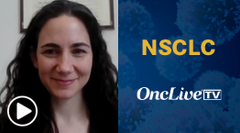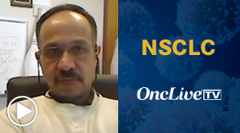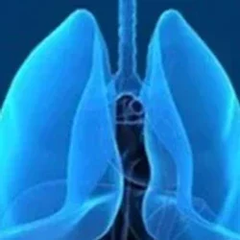
Dr. Jänne on the Promise of Mobocertinib in EGFR Exon 20–Mutant NSCLC
Pasi A. Jänne, MD, PhD, discusses the rationale for exploring mobocertinib in EGFR exon 20–mutated non–small cell lung cancer.
Episodes in this series

Pasi A. Jänne, MD, PhD, a senior physician and director of the Lowe Center for Thoracic Oncology, Belfer Center for Applied Cancer Science, and Chen-Huang Center for EGFR Mutant Lung Cancers at Dana-Farber Cancer Institute, discusses the rationale for exploring mobocertinib (formerly TAK-788) in EGFR exon 20–mutated non–small cell lung cancer (NSCLC).
Although prior EGFR inhibitors have been repurposed for use within this patient population, mobocertinib is a next-generation EGFR inhibitor that was preclinically designed to be more effective in patients whose tumors harbor EGFR exon 20 insertion mutations, according to Jänne.
This is a potential targeted therapy for patients with this subtype of EGFR-mutant NSCLC, says Jänne. Patients and providers alike should be optimistic about the data that have read out with emerging therapies like mobocertinib, as effective options for this population have been historically limited, Jänne concludes.


















































